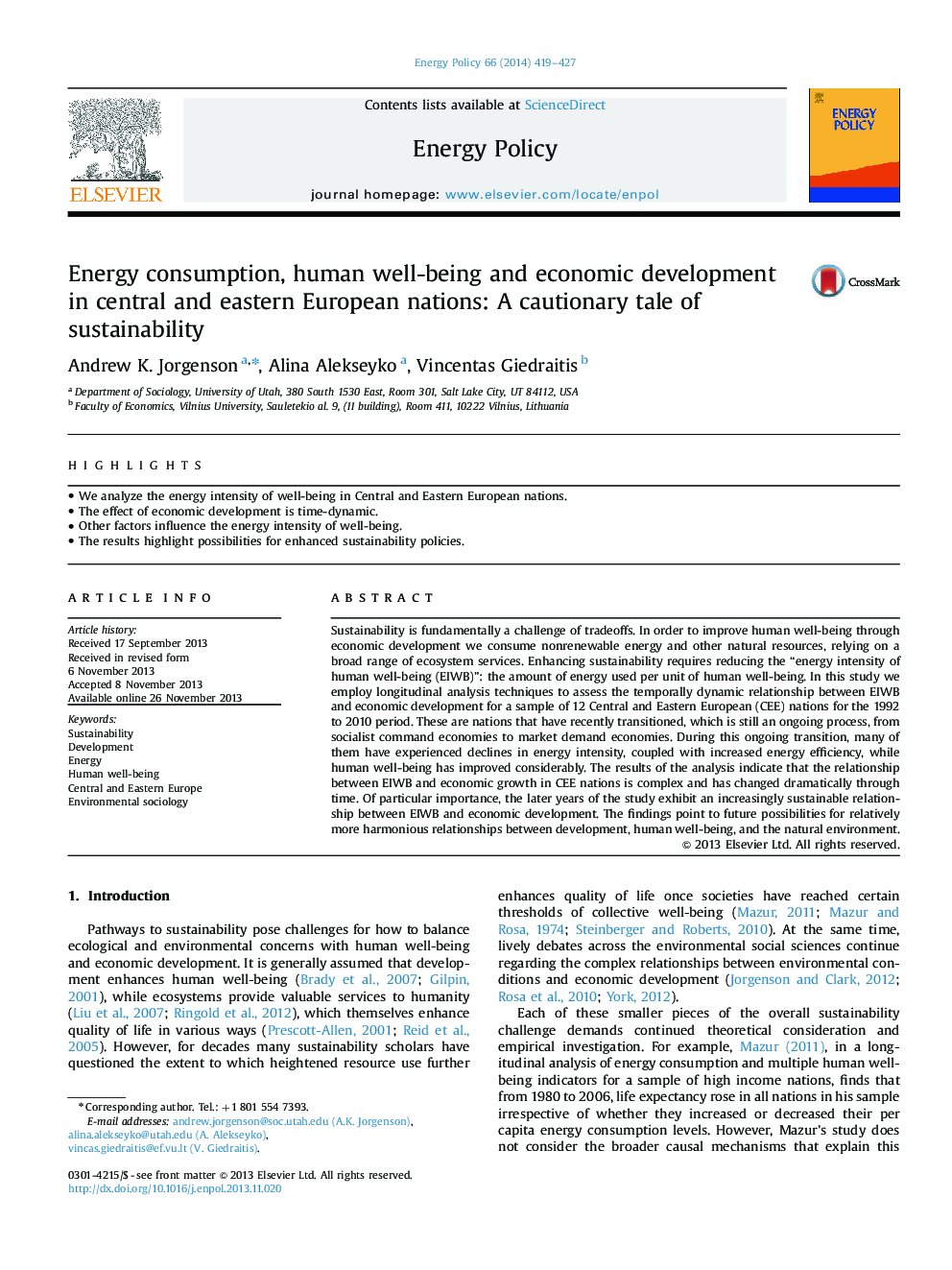| Article ID | Journal | Published Year | Pages | File Type |
|---|---|---|---|---|
| 7403044 | Energy Policy | 2014 | 9 Pages |
Abstract
Sustainability is fundamentally a challenge of tradeoffs. In order to improve human well-being through economic development we consume nonrenewable energy and other natural resources, relying on a broad range of ecosystem services. Enhancing sustainability requires reducing the “energy intensity of human well-being (EIWB)”: the amount of energy used per unit of human well-being. In this study we employ longitudinal analysis techniques to assess the temporally dynamic relationship between EIWB and economic development for a sample of 12 Central and Eastern European (CEE) nations for the 1992 to 2010 period. These are nations that have recently transitioned, which is still an ongoing process, from socialist command economies to market demand economies. During this ongoing transition, many of them have experienced declines in energy intensity, coupled with increased energy efficiency, while human well-being has improved considerably. The results of the analysis indicate that the relationship between EIWB and economic growth in CEE nations is complex and has changed dramatically through time. Of particular importance, the later years of the study exhibit an increasingly sustainable relationship between EIWB and economic development. The findings point to future possibilities for relatively more harmonious relationships between development, human well-being, and the natural environment.
Keywords
Related Topics
Physical Sciences and Engineering
Energy
Energy Engineering and Power Technology
Authors
Andrew K. Jorgenson, Alina Alekseyko, Vincentas Giedraitis,
